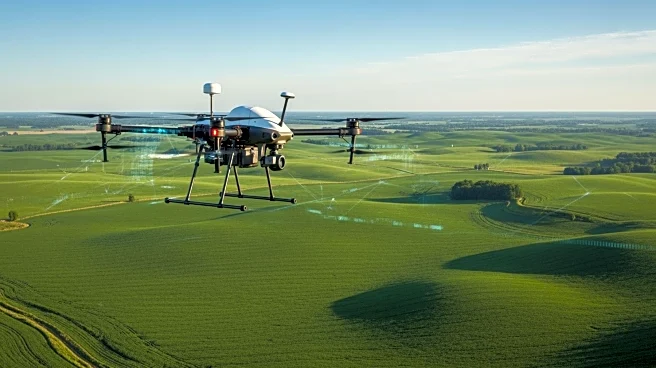What's Happening?
The World Wildlife Fund (WWF) and AgLaunch have launched the Delta Ag Alliance, a collaborative effort to transform agriculture in the mid-Mississippi Delta. The initiative seeks to shift farmland from
traditional commodity crops to high-value specialty food crops. According to WWF's report, converting 3% of farmland in eastern Arkansas, western Tennessee, and northwestern Mississippi to specialty crops by 2034 could generate an additional $3.2 billion in annual farmgate revenue. This effort aims to revitalize rural economies, enhance U.S. food security, and protect wildlife habitats. The alliance has successfully piloted specialty rice projects, demonstrating higher returns compared to traditional crops.
Why It's Important?
The Delta Ag Alliance represents a significant shift in agricultural practices, focusing on sustainability and economic growth. By diversifying crop production, the initiative addresses the risks associated with climate change and reliance on single-state food sources like California. This transformation could lead to increased economic opportunities for farmers in the Delta region, while also contributing to national food security. The focus on specialty crops aligns with broader trends towards sustainable agriculture and environmental conservation.
What's Next?
The alliance will continue to connect Delta farmers with buyers and explore new markets for specialty crops. As the initiative progresses, it may attract further investment and support from government and private sectors. The success of pilot projects could encourage more farmers to participate, potentially leading to widespread adoption of specialty crops in the region. Stakeholders will likely monitor the economic and environmental impacts of this transformation closely.










